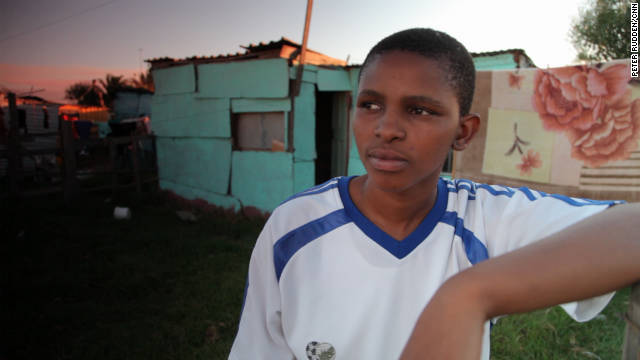By Zach Waksman
Impunity Watch Reporter, Africa
MONROVIA, Liberia – Next Tuesday, Liberia is scheduled to have a runoff election to determine who will be President of the small West African country. The top two candidates are the incumbent, Nobel Peace laureate Ellen Johnson-Sirleaf, who is the first female elected head of state in African history, of the Unity Party and Winston Tubman of the Congress for Democratic Change, if Tubman decides to take part in the election. The CDC is presently considering a boycott unless its demands are met.

Tubman received 32.7% of the vote in the first round of polling on October 11, second to Johnson-Sirleaf’s 43.9%. To win the election, a candidate must receive at least 50% of the vote, hence the current situation. Since the results’ announcement, the CDC has alleged widespread fraud, including the use of pre-marked ballots, which ran counter to claims from international observers such as the Carter Center, who praised the vote for being quick and efficient. With these claims, the CDC demanded the resignation of National Elections Commission Chairman James Fromayan as a condition for its taking part in the runoff, based in part on a letter it received from the NEC last week, saying that it had finished first in that vote.
Sunday, Fromayan announced that he was stepping down, in compliance with its demand. He claimed to have committed no wrongdoing.
“I want to emphasize that the decision I make today is in the supreme interest of the people of Liberia and not a capitulation of these demands,” Fromayan said. “It is my hope therefore that with my departure from the Commission, there will be no further obstacle or pre-condition for their participation in the November 8 presidential run-off election.”
Elizabeth Nelson, his deputy, will take his place. Sixteen complaints regarding the initial vote remain unresolved.
Despite Fromayan’s acquiescence, the CDC has remained steadfast in its boycott. Speaking to the press on Monday, Tubman called the resignation a gain.
“We need to make some administrative arrangements to allow us to observe the process more closely, he added.
The October 11 vote had been observed by about 800 foreign monitors and 4,000 local observers.
On Wednesday, Front Page Africa received a copy of the CDC’s list of conditions for participation in the runoff. Its demands seek “equity and a level playing field” by permitting an even split of ad-hoc NEC membership between the parties and the presence of international monitors who can actively participate in the process. It also wants greater security for the election materials and permission for party representatives to help illiterate voters find their preferred candidates.
The Carter Center will send a contingent of at least 50 international observers to Liberia. After receiving three days of briefing in Monrovia, the capital, they will spread throughout the country and remain there through the end of this month.
“These are historic elections for Liberia. Following a transparent and peaceful first round, Liberians now have the opportunity to cast their ballots in the second round to select Liberia’s next president,” said Alexander Bick, its election observation mission director.
Nelson was resolute in response to the CDC’s comments. In response to the NEC’s letter claiming it had finished first in the October 11 vote, she said: “In fact that letter wasn’t even necessary. We are on zero-zero. Unity Party has no score, CDC has no score, so it is not important. It is just not important. We are going to a runoff.”
For more information, please see:
Carter Center — Carter Center Observers Due for Run-Off — 02 November 2011
Front Page Africa — CDC Demands in Details: Full Text of Remaining Conditions for Runoff Participation — 02 November 2011
Liberian Observer —CDC Makes New Tough Demands, but New NEC Chair Says Nov. 8 Vote on Schedule — 02 November 2011
Al Jazeera — Liberia Election Commission Chief Resigns — 31 October 2011
BBC — Liberia Election: Tubman Hails Poll Chief’s Resignation — 31 October 2011
Front Page Africa — Not Enough: CDC Standard Bearer, Sec. Gen. Split over Fromayan’s Resignation — 31 October 2011
New York Times — Liberia: Presidential Candidate May Still Boycott Runoff Vote — 31 October 2011


